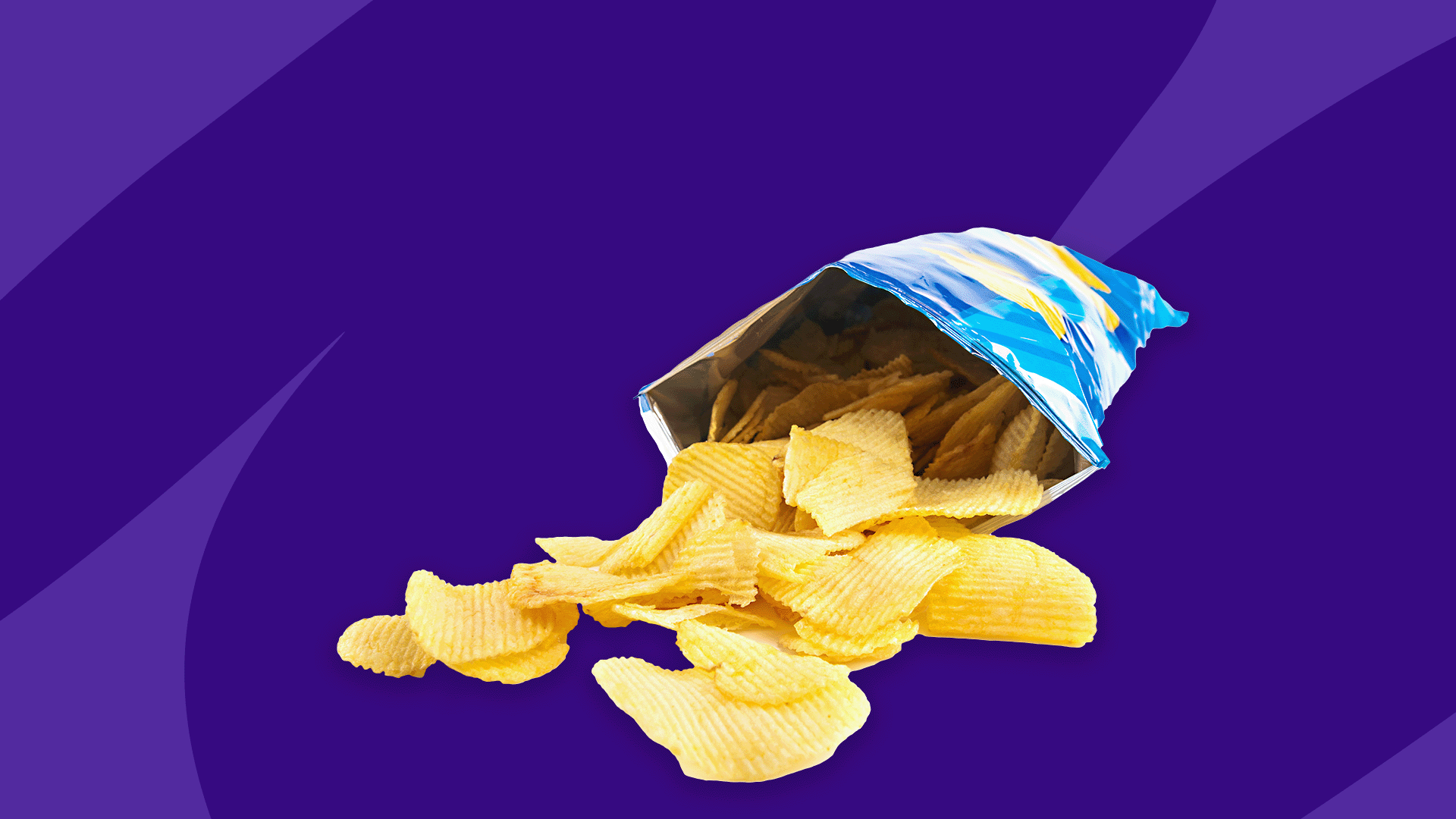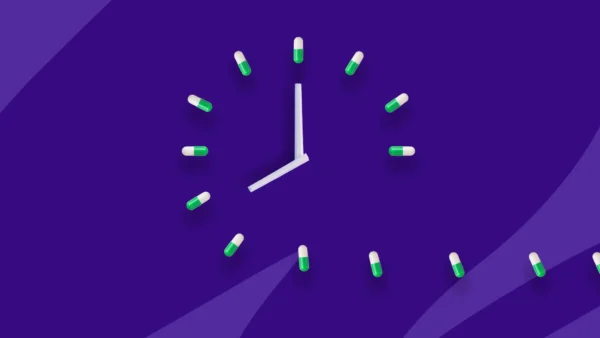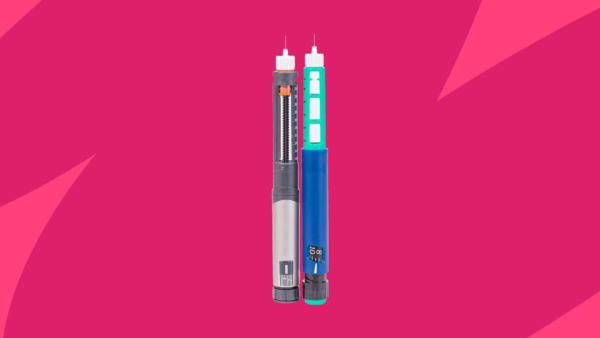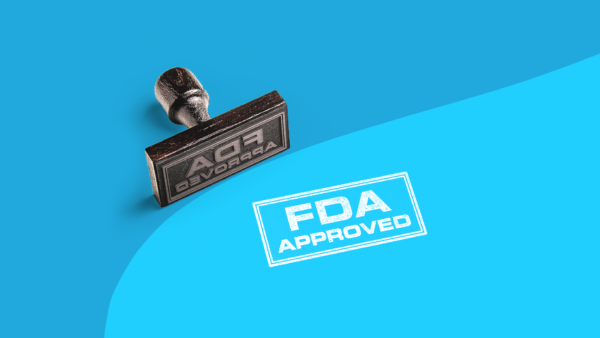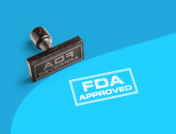Metoprolol is a medication used primarily to help manage high blood pressure. If you are new to taking the prescription drug, you may have questions about metoprolol food interactions. For example, are there certain foods to avoid while taking metoprolol? Should you take metoprolol with or without food? Are there specific foods that are beneficial to consume while taking metoprolol?
These are all understandable questions—after all, you want the medication to work effectively, and to minimize uncomfortable side effects. Let’s take a look at metoprolol and food: what to eat, what to steer clear of, how to time meals around drug doses, and what the best dietary choices are for someone looking to lower their blood pressure.
RELATED: How much is metoprolol without insurance?
How metoprolol works
Metoprolol, also known by the brand names Lopressor and Toprol XL, is a beta blocker prescribed to help lower blood pressure, reduce chest pain, and increase your chances of survival after a heart attack or heart disease. Metoprolol works by blocking beta-1 adrenergic receptors, explains Michael Goyfman, MD, chief of cardiology and director of echocardiography at Long Island Jewish Forest Hills in New York. “This results in a slower heart rate as well as reduced contractility of the heart,” he says. “Both of those effects decrease the oxygen demands of the heart and so improve symptoms of angina when there is insufficient blood supply to the heart muscle.” This mechanism is also thought to be what causes the blood pressure lowering effects of metoprolol, Dr. Goyfam adds. Clinical studies have shown that metoprolol lowers pulse and how hard your heart has to work during exercise, as well as decrease your systolic blood pressure during exercise.
A normal resting pulse rate is between 60 and 100 beats per minute. Sometimes people who are on beta blockers, such as metoprolol, will have a resting pulse below 60 beats per minute. If your pulse is consistently below 60 beats per minute, you should notify your provider. This is likely a normal side effect of metoprolol, but your healthcare provider may ask you to keep a log of your heart rate to monitor the situation and help determine the best dosage for your body. Patients should discuss all pre-existing medical conditions with their doctor to ensure metoprolol is safe to take. People with heart problems, like bradycardia or abnormal heart rhythms, may be advised not to take metoprolol, or will need close monitoring if metoprolol is prescribed.
Metoprolol may be taken on its own or along with other medications used to manage high blood pressure or heart failure. There are two types of metoprolol: regular (immediate-release) tablets taken one to two times a day and extended-release tablets (metoprolol succinate) taken once daily. Doses of metoprolol take about one to two hours to begin to take effect. If you’ve just started taking metoprolol, it can take about a week for your body to adjust and for the medication to take full effect. Metoprolol works best when combined with dietary and lifestyle changes aimed at reducing blood pressure.
RELATED: Metoprolol tartrate vs. metoprolol succinate | Metoprolol alternatives | Can you take beta blockers and exercise?
What should you eat while taking metoprolol?
You might be wondering if it’s best to take metoprolol on an empty stomach or with food. The answer is that it depends on the type of metoprolol you are taking, according to Rachel-Maria Brown Talaska, MD, director of inpatient cardiac services at Lenox Hill Hospital.
The main reason why you’d take metoprolol with food is that it can boost the drug’s effectiveness. “Food increases the absorption of metoprolol and serum levels may increase if taken with food,” Dr. Brown Talaska says. But that is most true when you are taking short-acting metoprolol tablets. Dr. Brown Talaska highly recommends taking those with food. The prescribing information for metoprolol succinate extended-release also recommends that patients take the medication with a meal or just after a meal.
But there are other dietary considerations to keep in mind when taking metoprolol. Remember, the drug works best when you also stick to a blood pressure-lowering diet. What might that look like? “As cardiologists, we advise a heart-healthy diet rich in whole grains, legumes/beans, vegetables, whole fruits, low-fat dairy, and lean proteins as part of a comprehensive heart healthy lifestyle,” Dr. Brown Talaska says.
Dr. Goyfman recommends the DASH diet, citing studies that have found it to be an effective approach to lowering blood pressure. The DASH diet (Dietary Approaches to Stop Hypertension) includes recommendations such as keeping your sodium intake to under 2300 mg per day (the amount in one teaspoon of salt), and emphasizes fruits, veggies, low-fat dairy, whole grains, and foods low in saturated fat.
4 foods to avoid with metoprolol
In general, there are no specific foods you need to avoid while on metoprolol. “In fact, food helps increase absorption of metoprolol so it is recommended to take it with meals or immediately after a meal,” says Dr. Goyfman. Additionally, drugmakers do not give any specific warnings about metoprolol interactions with food.
Still, there are some foods and drinks that have the potential to negatively affect the absorption of metoprolol. Not only that, but because your goal while on metoprolol is to lower your blood pressure, it makes sense to avoid foods that can increase blood pressure. Here are some foods and drinks that are best avoided when you are taking metoprolol.
1. Salty foods
If you want to lower your blood pressure, reducing sodium is an important first step as it will enhance the effects of any blood pressure lowering medication you are taking. “Foods that can worsen blood pressure include any foods that are high in sodium,” says Dr. Goyfman. Sodium is added to almost any food you don’t make yourself. Monitor your consumption of take-out food, frozen meals, canned soups, and other prepared foods. The American Heart Association recommends keeping your daily sodium intake under 2,300 mg per day, or ideally under 1,500 mg daily, especially if you have high blood pressure.
2. Processed foods
Dr. Brown Talaska recommends reducing highly-processed foods when you are looking to manage blood pressure. “Foods that exacerbate high blood pressure and should be avoided include processed meats including deli and cured meats, preserved canned foods, fried foods,
high-sodium snacks such as pickles, condiments, and sauces such as ketchup, soy sauce, salad dressings, and barbecue sauce, as well as table salt,” she advises.
As an alternative to these types of food, studies have found that adopting the Mediterranean diet can reduce your blood pressure. This means concentrating on foods like:
- Olive oil
- Fruits and vegetables
- Whole grains
- Nuts and seeds
- Beans
- Low-fat dairy products
- Fish or skinless chicken
3. Alcohol
High alcohol intake can increase your blood pressure over time, says Dr. Goyfman. He doesn’t recommend more than 1 serving per day for women or 2 servings a day for men. Additionally, one of the side effects of metoprolol is dizziness or lightheadedness, and alcohol may make that dizziness worse. Many doctors recommend not drinking alcohol at all when you first start taking metoprolol to see how the drug affects you. Even once your body adjusts, it’s best to limit alcohol consumption while on the metoprolol. You can also consult your doctor about alcohol consumption and metoprolol if you have questions.
4. Excess caffeine
Both Dr. Brown Talaska and Dr. Goyfman recommend limiting caffeine consumption while on metoprolol. “Caffeinated products, such as coffee, have the ability to decrease the effectiveness of metoprolol,” Dr. Brown Talaska explains. Dr. Goyfman agrees that it’s best to avoid caffeine because it can decrease drug absorption. Additionally, excess caffeine can increase your blood pressure. “Caffeine can raise the blood pressure and may make the metoprolol less effective, so it is best to avoid [consuming caffeine] if possible,” he advises.
Herbs and supplements to avoid with metoprolol
The drug information for metoprolol doesn’t list any herbs or supplements that have known drug interactions with metoprolol. Dr. Brown Talaska’s medical advice is to connect with your doctor if you are considering any kind of over-the-counter supplement, like calcium or vitamin C. “It is recommended you speak with a healthcare professional if considering adding vitamins or herbal supplements as many of the compounds are not Food and Drug Administration (FDA) tested or approved for the marketed indication,” she says.
Gastrointestinal side effects of metoprolol
There are some side effects you may experience while taking metoprolol, including fatigue, dry mouth, dizziness, slower heart rate, itchiness, drowsiness, and difficulty sleeping. Some possible side effects are gastrointestinal in nature and may include:
- Nausea
- Diarrhea
- Stomach aches
- Constipation
- Gassiness
- Heartburn
Not everyone experiences these side effects, and many of them go away within a few days after you first start the medication, as your body gets used to it. Still, you should talk to your doctor about changing your dose or trying a different medication, if your symptoms do not resolve.
Sometimes tweaking your diet while on metoprolol can make your digestive symptoms more manageable. If you are experiencing constipation, gas, or stomach pain, increasing your fiber intake may help you get things moving and decrease some of your bloating and pain. As an added bonus, fiber is also a great way to lower blood pressure. If you are experiencing nausea, heartburn, or diarrhea, consider avoiding spicy foods, fried foods, or rich foods.
Metoprolol may also mask the side effects of some conditions. It can mask symptoms of low blood sugar levels in people with diabetes and the signs of an overly active thyroid in people with thyroid disease.
Some side effects from metoprolol are normal and usually pass. But some serious side effects require immediate medical attention. Hives, shortness of breath, or swelling of the face, lips, tongue, or throat, could indicate a severe allergic reaction and require emergency medical attention.
Other symptoms like fainting, rapid weight gain, irregular heartbeat, or swollen hands, legs, or feet, could also be signs of a serious reaction. If you are experiencing any of these symptoms, contact your healthcare provider promptly.
Sources
- Metoprolol tartrate, National Library of Medicine
- All About Heart Rate (Pulse), American Heart Association
- Metoprolol, National Library of Medicine (2023)
- A Clinical Trial of the Effects of Dietary Patterns on Blood Pressure, The New England Journal of Medicine (1997)
- Shaking the Salt Habit to Lower High Blood Pressure, American Heart Association.
- Dietary Approaches to Prevent Hypertension, Current Hypertension Reports (2015)
- What is a Standard Drink? National Institute on Alcohol Abuse and Alcoholism
- Common questions about metoprolol, National Health Services (2022)
- Side effects of metoprolol, National Health Services (2022)



